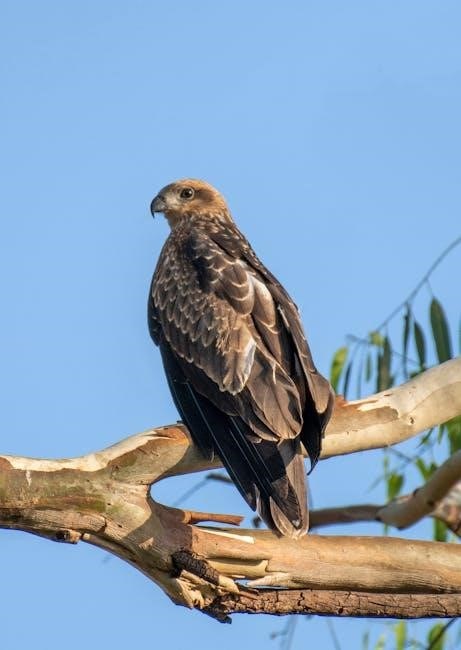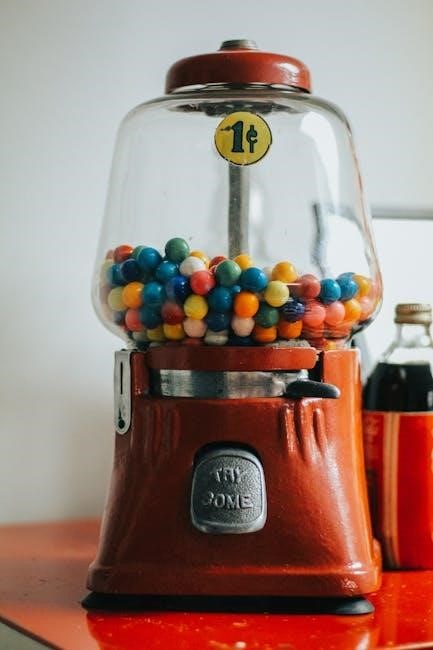Coin hunting is a popular hobby that combines adventure and discovery. It involves searching for rare and valuable coins‚ experiencing the thrill of the hunt‚ and learning about history‚ culture‚ and economics through numismatics. Many enthusiasts find joy in uncovering hidden treasures‚ whether through coin roll hunting or metal detecting‚ making it a rewarding pastime for collectors of all levels.
What is Coin Hunting?
Coin hunting is a fascinating hobby that involves searching for rare‚ valuable‚ or unique coins. It combines adventure‚ history‚ and strategy‚ appealing to both casual enthusiasts and serious numismatists. Whether through coin roll hunting at banks or metal detecting in outdoor locations‚ the goal is to uncover hidden treasures. Many hunters enjoy the thrill of discovering unexpected coins‚ such as error coins or key date coins‚ which can hold significant value. This hobby also offers a deep connection to history‚ culture‚ and economics‚ making it a rewarding experience for those who embark on the journey of coin hunting.
The History of Coin Collecting
Coin collecting‚ or numismatics‚ has a rich history spanning over 2‚000 years. It began as a hobby of kings and nobles‚ who sought rare and beautiful coins as symbols of wealth and power. Over time‚ numismatics evolved into a global pursuit‚ with collectors appreciating coins for their historical significance‚ artistic value‚ and rarity. The modern era has seen the rise of organized collecting‚ with guides like the Red Book (A Guide Book of United States Coins) helping enthusiasts identify and evaluate their finds. Today‚ coin hunting remains a popular pastime‚ blending tradition with modern techniques like metal detecting and roll hunting.
The Appeal of Coin Hunting
Coin hunting captivates enthusiasts with its blend of adventure‚ discovery‚ and the thrill of the unknown. The excitement lies in the possibility of uncovering rare or valuable coins‚ whether through coin roll hunting or metal detecting. Many find joy in the process of searching‚ as it combines patience‚ strategy‚ and luck. Additionally‚ coin hunting offers a connection to history‚ allowing collectors to hold pieces of the past. The hobby also fosters learning‚ as enthusiasts study coin varieties‚ error coins‚ and market trends. Sharing discoveries with a vibrant community further enhances the appeal‚ making coin hunting a rewarding and engaging pursuit for people of all ages and backgrounds.

Getting Started with Coin Hunting
Welcome to the exciting world of coin hunting! Start by understanding the basics‚ gathering essential supplies like good lighting and magnification‚ and learning key strategies to succeed. Begin with simple methods like coin roll hunting and gradually explore more advanced techniques like metal detecting. Patience and persistence are key—every hunt is an opportunity to discover something new and valuable. Equip yourself with knowledge and the right tools to embark on this rewarding adventure and uncover hidden treasures!
Understanding the Basics of Numismatics
Numismatics‚ the study of coins and currency‚ is essential for coin hunters. It involves understanding coin grading‚ key dates‚ and error coins‚ which determine a coin’s value. Learning about mint marks‚ metal composition‚ and historical context helps identify rare finds. Resources like the Guide Book of United States Coins provide valuable insights. Familiarizing yourself with these basics enhances your hunting skills and allows you to make informed decisions when evaluating or selling coins. Building this knowledge is the foundation of a successful and enjoyable coin hunting journey‚ ensuring you recognize and appreciate the treasures you uncover.
Necessary Supplies for Coin Hunting
To begin coin hunting‚ you’ll need a few essential supplies. A good pair of gloves protects coins from oils in your skin‚ while a magnifying glass or jeweler’s loupe helps examine details. A reference guide‚ like the Guide Book of United States Coins‚ is crucial for identifying and valuing finds. For metal detecting‚ a reliable detector with settings for coins is necessary‚ along with a small shovel or trowel for digging. A sifter can help separate coins from dirt‚ and a sturdy container keeps your finds organized. These tools enhance your efficiency and enjoyment‚ making every hunt more rewarding and productive.
Understanding Coins
Understanding coins involves exploring their history‚ design‚ and value. From rare key date coins to error coins‚ each piece tells a story of culture and economics‚ offering a fascinating hobby for collectors seeking unique finds.
Key Date Coins
Key date coins are rare and highly sought-after issues within a coin series‚ often due to low mintage‚ unique designs‚ or historical significance. These coins‚ such as the 1913 Liberty Head nickel or the 1933 Double Eagle‚ are prized by collectors for their scarcity and value. Identifying key dates requires knowledge of mintage numbers‚ condition‚ and market demand. They often serve as the centerpiece of a collection‚ making them a thrilling target for coin hunters. Understanding these rare treasures can enhance your hunting strategy and add significant value to your collection‚ making the pursuit even more rewarding and exciting.
Error Coins
Error coins are rare and unique due to minting mistakes‚ offering exciting discoveries. Examples include off-center strikes‚ double-struck coins‚ and missing elements like the 1982 “no P” dime. These mistakes make coins highly collectible. Enthusiasts find joy in spotting such errors‚ adding an extra layer of challenge and excitement to coin hunting. Collectors value these anomalies for their rarity and historical significance‚ enhancing collections with distinctive character. The pursuit of error coins keeps the hobby dynamic‚ blending luck and knowledge. Each error tells a story of minting imperfections‚ captivating numismatists worldwide and making coin hunting endlessly rewarding.
Coin Grading
Coin grading is a critical step in determining the value of a coin. It evaluates condition‚ rarity‚ and authenticity‚ with grades like MS-70 for perfect coins. Professional services like PCGS and NGC provide unbiased assessments. Higher grades command better prices‚ making grading essential for collectors and sellers alike. Proper grading ensures fair market value alignment‚ enhancing trust in transactions. Accurate grading is a skill refined over time‚ combining knowledge and attention to detail‚ crucial for maximizing a coin’s worth and maintaining a high-quality collection. This process is vital for both enthusiasts and investors‚ ensuring each coin’s value is accurately reflected in the market.

Where to Hunt for Coins
Coin hunters often search through coin rolls from banks‚ explore outdoor locations with metal detectors‚ and examine circulation for rare or error coins. Parks‚ historical sites‚ and even home coin jars can yield hidden treasures‚ making the hunt exciting and unpredictable.
Coin Roll Hunting
Coin roll hunting involves purchasing rolls of coins from banks and searching for rare or valuable pieces. Many enthusiasts find excitement in uncovering hidden gems within these rolls. By carefully inspecting each coin‚ hunters can identify key dates‚ error coins‚ or even silver content. This method is particularly appealing because it combines affordability with the thrill of discovery. Some collectors focus on specific denominations‚ like quarters or nickels‚ to increase their chances of finding valuable coins. Using resources like the Red Book or online guides can help hunters evaluate their finds. The simplicity of this approach makes it accessible to both beginners and seasoned collectors‚ offering a fun and rewarding experience.
Metal Detecting for Coins
Metal detecting for coins is an exciting and rewarding method of coin hunting. It involves using a metal detector to locate coins in various outdoor locations‚ such as parks‚ beaches‚ and historical sites. This technique allows hunters to uncover coins that have been lost for decades‚ often revealing pieces with significant historical value. Beginners can start in easy-to-search areas‚ while experienced detectorists may venture into more challenging terrains. Proper techniques‚ such as scanning slowly and pinpointing targets‚ are essential for success. Respecting private property and following local regulations are also crucial. The thrill of unearthing a rare or ancient coin makes metal detecting a popular choice for many enthusiasts‚ combining adventure with a connection to the past.

Tools and Techniques
Coin hunting requires essential tools like metal detectors‚ magnifying glasses‚ gloves‚ and reference guides to identify and evaluate finds effectively‚ ensuring a successful and enjoyable experience.
Essential Tools for Coin Hunting
Coin hunting requires specific tools to maximize success. A metal detector is crucial for locating buried coins‚ while gloves protect both hands and coins during handling. A magnifying glass or coin loupe helps examine details like dates and mintmarks. Reference guides‚ such as the Guide Book of United States Coins‚ are indispensable for identifying and valuing finds. Coin albums or folders organize collections‚ and protective sleeves preserve coins from damage. For coin roll hunting‚ a bank roll cutter simplifies opening rolls‚ while latex gloves prevent oils from fingers tarnishing coins. These tools enhance efficiency and enjoyment in the pursuit of coin hunting.
Effective Strategies for Coin Hunting
Successful coin hunting relies on strategic approaches; Always research locations like banks‚ flea markets‚ or historical sites. Systematic searching ensures no coin goes unnoticed. For coin roll hunting‚ inspect rolls thoroughly‚ focusing on older or less common coins. When metal detecting‚ target areas with historical significance. Study key dates and error coins to recognize valuable finds instantly. Use reference guides to identify and evaluate coins accurately. Stay updated on market trends to maximize profit when selling. Networking with other collectors can also lead to valuable tips and opportunities. Documenting finds helps track progress and refine future strategies. Patience and persistence are key to making coin hunting a rewarding experience.

Evaluating and Preserving Your Finds
Evaluating coins involves assessing condition‚ rarity‚ and historical significance. Use grading guides like the Red Book or PCGS standards. Store coins in protective sleeves or albums to maintain their value and prevent damage over time;
How to Evaluate the Value of Coins
Evaluating the value of coins involves assessing their condition‚ rarity‚ historical significance‚ and metal content. Begin by referencing guides like the A Guide Book of United States Coins or PCGS grading standards. Check for key dates‚ error coins‚ and unique varieties‚ as these can significantly increase value. Examine the coin’s condition‚ including luster‚ details‚ and wear. Research similar coins sold at auctions or online marketplaces to determine fair market value. Separate coins by type‚ series‚ and condition to organize your collection. For rare or high-value coins‚ consider professional grading and certification to ensure authenticity and maximize value. Proper evaluation ensures your finds are preserved and valued accurately.
Preserving and Storing Coins
Properly preserving and storing coins is essential to maintain their condition and value. Use acid-free materials like coin folders‚ albums‚ or individual holders to prevent damage; Store coins in a cool‚ dry place to avoid humidity and temperature fluctuations. Handle coins by their edges to prevent oils from your skin from tarnishing the surfaces. Avoid cleaning coins unless necessary‚ as improper methods can reduce their value. For rare or valuable coins‚ consider professional grading and encapsulation. Organize your collection by type‚ series‚ or date for easy access. Regularly inspect stored coins to ensure their condition remains stable. Proper preservation ensures your collection remains intact for years to come‚ preserving both its historical and monetary value.
Documenting Your Coin Collection
Documenting your coin collection is crucial for tracking‚ valuation‚ and sharing your finds. Start by creating a detailed catalog‚ noting each coin’s denomination‚ year‚ mint mark‚ condition‚ and rarity. Use reference guides or apps to record accurate information. Include photographs of both the obverse and reverse sides for visual documentation. Maintain a journal of your coin hunting adventures‚ recounting where and when each coin was found. Digital tools like spreadsheets or specialized software can help organize and update your collection. Regularly update your records as new coins are added or existing ones are sold. Proper documentation ensures your collection’s legacy and makes it easier to manage and enjoy over time. It also aids in insurance and estate planning‚ preserving your collection’s value for future generations.

Selling Coins
Selling coins requires research and strategy to maximize profit. Use online marketplaces‚ auctions‚ or local dealers to reach potential buyers. Price coins accurately‚ and ensure proper presentation to attract buyers and achieve the best value for your collection.
How to Sell Coins for Maximum Profit
To sell coins for maximum profit‚ research their value using guides like the Red Book or online forums. Grading coins through services like NGC or PCGS increases their appeal and value. Consider selling through reputable platforms like eBay or specialized coin forums. Timing is crucial—sell when demand is high or during auctions for rare coins. Avoid common mistakes like underselling or failing to disclose coin details. Provide clear photos and descriptions to attract serious buyers. Stay updated on market trends and rare coin discoveries to capitalize on opportunities. By combining knowledge‚ presentation‚ and strategic timing‚ you can achieve the best returns for your coin collection.
Using Online Marketplaces for Coin Sales
Online marketplaces like eBay‚ specialized coin forums‚ and Facebook Marketplace offer excellent platforms to sell coins. High-quality photos and detailed descriptions are essential to attract buyers. Research similar listings to set competitive prices. Consider auction-style listings for rare coins to maximize profit. Platforms like Etsy and Reddit communities also cater to coin enthusiasts. Be transparent about coin condition and provenance to build trust. Utilize keywords to make your listings easily discoverable. Keep track of fees and shipping costs to ensure profitability. Regularly monitor market trends to adjust pricing and capitalize on demand. By leveraging online platforms effectively‚ you can reach a global audience and achieve better returns for your coins.

Advanced Coin Hunting Strategies
Advanced coin hunting involves deep research‚ using specialized tools‚ and staying updated on rare finds. Networking with experienced hunters and tracking market trends can yield significant results.
Avoiding Common Mistakes in Coin Hunting
Beginners often rush into coin hunting without proper research‚ leading to missed opportunities. Overlooking rare coins in rolls or misidentifying error coins are common pitfalls. Many hunters neglect to study market trends‚ resulting in undervalued sales. Impatience can lead to poor decisions‚ such as selling coins too quickly. Handling coins improperly can damage their condition‚ reducing their value. Additionally‚ some hunters focus too much on rare coins‚ ignoring the potential of common ones. Avoiding these mistakes requires patience‚ thorough research‚ and a deep understanding of numismatics. Networking with experienced collectors and staying updated on trends can also help prevent costly errors.
Staying Updated on Rare and Valuable Coins
To stay ahead in coin hunting‚ it’s crucial to remain informed about rare and valuable coins. Regularly consult numismatic guides‚ such as A Guide Book of United States Coins‚ to identify key date and error coins. Follow online forums‚ collector communities‚ and market trends to track demand and value fluctuations. Subscribe to newsletters from reputable auction houses and coin dealers for updates on rare finds. Networking with experienced collectors can also provide insights into emerging trends. Additionally‚ learning about recent discoveries and auction results helps you recognize opportunities. Staying informed ensures you don’t miss out on valuable coins and can make informed decisions when buying or selling.
Coin hunting is a rewarding hobby that blends adventure‚ history‚ and strategy. From coin roll hunting to metal detecting‚ enthusiasts find joy in the thrill of discovery. Whether searching for rare coins‚ learning about numismatics‚ or connecting with fellow collectors‚ the journey is as valuable as the finds. By staying updated on market trends and continuously learning‚ collectors can enhance their experiences. The hobby offers a lifelong journey of growth‚ camaraderie‚ and the satisfaction of building a meaningful collection. Embrace the excitement of the hunt and the knowledge gained along the way‚ making every discovery a cherished moment in your numismatic adventure.